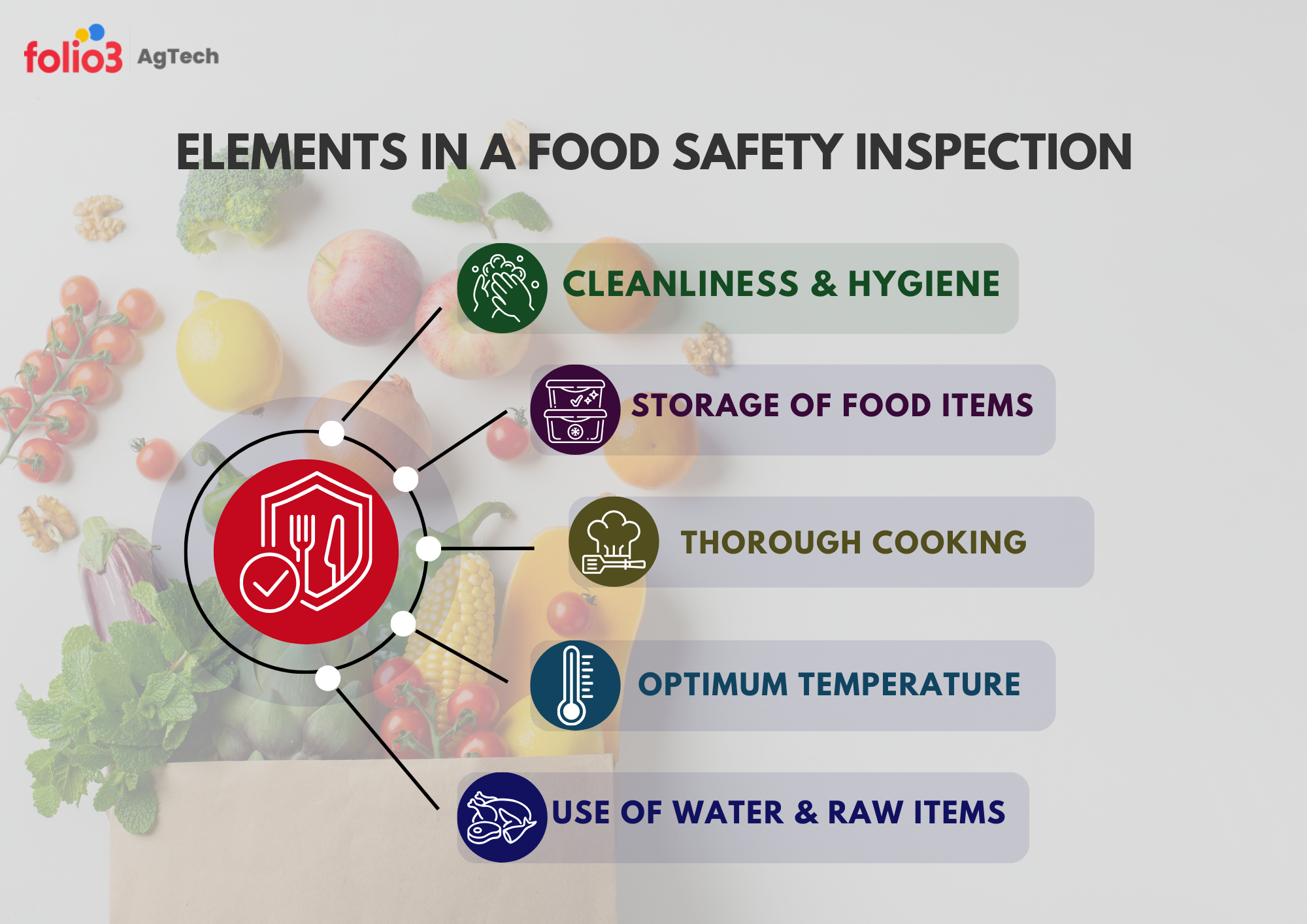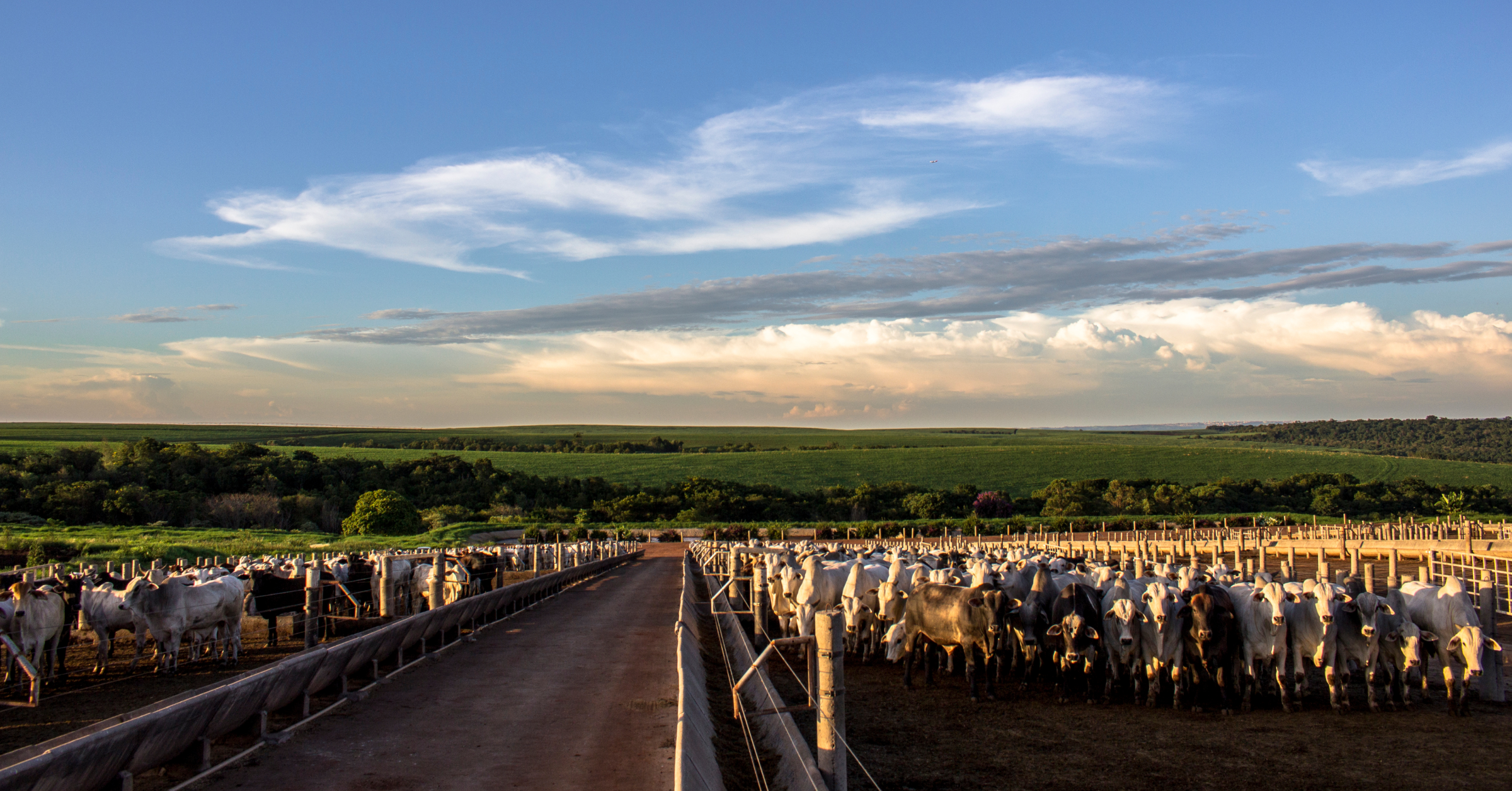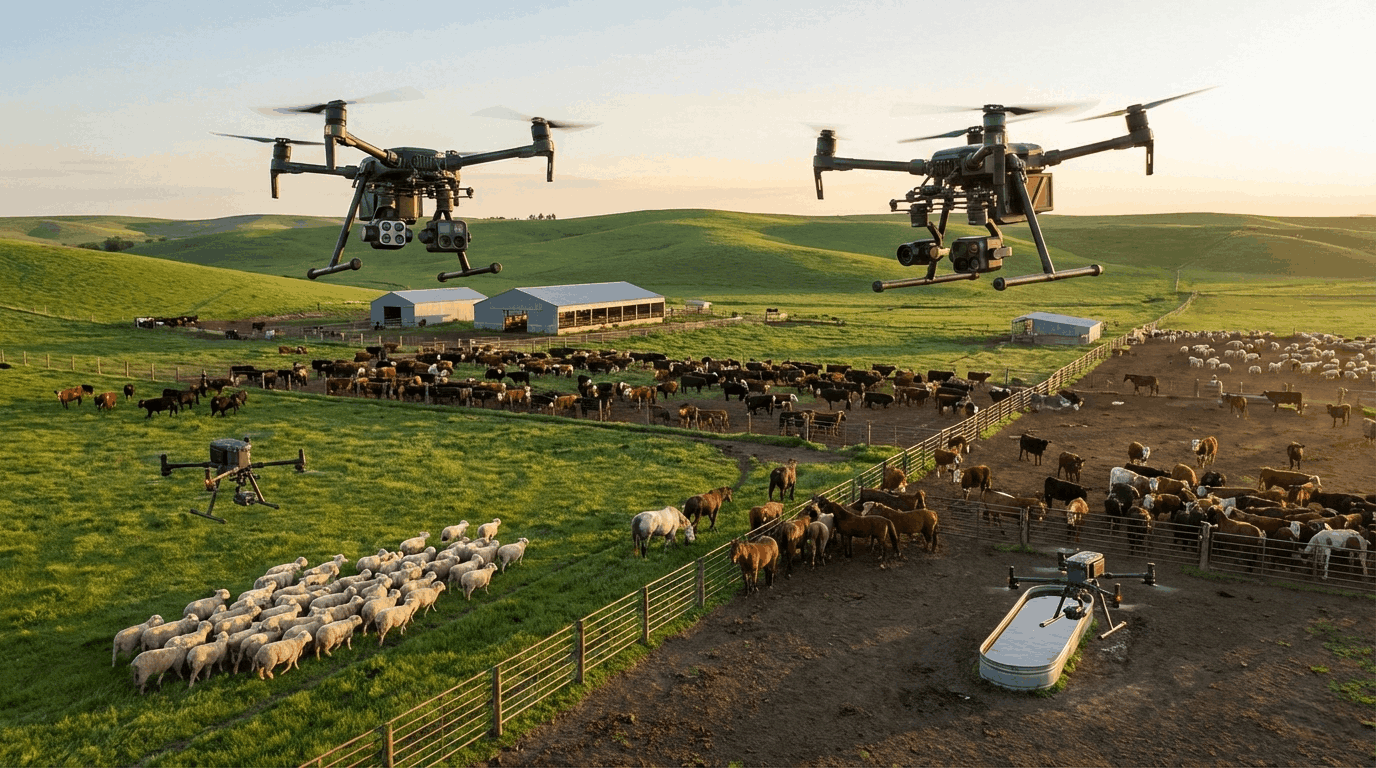Did you know that, in 2023, several major meat processing plants were forced to temporarily shut down due to sanitation failures, resulting in significant financial losses? For example, the Boar’s Head plant in Virginia had multiple shutdowns after food safety inspections revealed severe hygiene violations, such as meat buildup and improper labeling, contributing to a Listeria outbreak.
This highlights the critical need for meat processors to maintain stringent food safety standards to avoid costly disruptions and protect consumer trust. Food safety inspections, which target contamination risks in raw meat, ensure that your plant complies with safety regulations and manages protocols effectively.
Failure to meet these standards can lead to fines, food recalls, and even business closures. A digital food safety management system can streamline your operations, making it easier to organize documentation, meet accountability requirements, and comply with safety standards.
In this blog, we will explore essential inspection procedures, highlight potential pitfalls, and discuss how effective management systems can help you stay compliant and maintain the highest food safety standards.
What is Food Safety Inspection?
There’s no room for compromise when it comes to safeguarding public health. Every bite of food carries the risk potential, and ensuring its safety is paramount. But how can we guarantee that our food is free from harmful contaminants?
That’s where food safety inspections come in. Food safety inspections aren’t just a formality and critical safeguard across all food industries. They help ensure that your business not only meets food safety standards but also excels in maintaining an effective food safety management system.
These inspections are like a meticulous detective looking for sneaky troublemakers that might compromise your food’s safety. They target:
- Germs
- Microbes
- Harmful microorganisms
The Purpose of Food Safety Inspections
Food safety inspections aim to identify and mitigate foodborne illnesses and contamination risks. This involves scrutinizing every aspect of the facility’s operations for meat processing plants to ensure that all practices align with safety regulations and industry standards. The primary objectives are:
- Preventing Contamination: Ensuring food is handled, processed, and stored to avoid contamination from harmful microorganisms.
- Compliance: Verifying that the facility adheres to local, national, and international food safety laws and regulations.
- Protecting Consumer Health: Safeguarding public health by ensuring all meat products are safe for consumption.
How Does Food Safety Inspection Work? – The Inspection Process
The inspection process typically involves:
- Pre-Inspection Preparation: To prepare for the inspection, inspectors review the facility’s history, previous inspection reports, and compliance records.
- On-Site Evaluation: Inspectors conduct a thorough walkthrough of the facility, observing operations, taking samples, and reviewing records. They assess compliance with food safety protocols, cleanliness, and food safety practices.
- Documentation Review: Inspectors check the facility’s documentation, including safety records, training logs, and procedures. Proper documentation is essential for demonstrating compliance and ensuring accountability.
- Feedback and Reporting: After the inspection, inspectors provide feedback on findings, including any violations or areas for improvement. They may issue a report outlining required corrective actions and timelines for compliance.
Key Components in a Food Safety Inspection
Food safety inspections are like a high-stakes game where every detail matters. To keep your food safe and your business compliant, focus on these critical elements:
- Cleanliness and Hygiene: Think of harmful microorganisms as uninvited guests. They can quickly spread and cause contamination. Maintaining impeccable cleanliness and hygiene practices is essential to prevent these troublemakers from entering your food.
- Storage of Raw and Cooked Ingredients: Picture this: raw meat, poultry, and vegetables are teeming with potential pathogens. Keeping these items separate from cooked ingredients is crucial to prevent cross-contamination and protect your consumers from possible health risks.
- Thorough Cooking: Cooking food to at least 70°C (158°F) is a game-changer. This temperature effectively kills harmful microorganisms, especially when preparing large quantities. It’s a fundamental step in ensuring your food is safe to eat.
- Maintaining Optimum Temperature: Proper temperature control is critical. Store food above 60°C (140°F) or below 5 °C (41°F) to keep harmful microbes at bay. Avoid letting ingredients linger for too long to minimize the risk of contamination.
- Proper Utilization of Water and Raw Ingredients: Water and raw ingredients, including those used in ice cubes, can harbor harmful chemicals and microorganisms. Ensuring they are properly stored and utilized is essential for maintaining food safety.
The Role of Food Safety Inspection in the Meat Processing Industry
Food safety inspections ensure that meat processing plants adhere to rigorous food safety standards, protecting public health and maintaining industry integrity. Here’s an in-depth look at how these inspections work and why they are essential:
How Does Food Safety Inspection Work for Meat Processing Plants?
Food safety inspections in meat processing plants are designed to verify that all aspects of meat production comply with established safety regulations. This process involves several key steps:
- Conducting Physical Inspections: Health Inspectors perform on-site evaluations, examining equipment, facilities, and operational practices to ensure they meet hygiene and safety standards. This hands-on approach helps identify immediate risks or issues affecting meat safety.
- Reviewing Records: Detailed record reviews are crucial for understanding a plant’s adherence to safety protocols. Inspectors check documentation related to sanitation practices, temperature logs, employee training, and other critical aspects of meat processing.
- Identifying Violations: Any deviations from safety standards are noted during the inspection. Violations can range from minor procedural lapses to significant safety risks that could endanger consumer health.
- Addressing Potential Hazards: Inspectors identify problems and provide guidance on addressing potential hazards. This proactive approach helps facilities implement corrective measures to improve safety and compliance.
What Should Your Meat Processing Plant Focus on to Pass Inspections?
Preparation is key for successful food safety inspections. Here’s what your meat processing plant should focus on:
- Hazard Prevention: Ensure your facility is free from hazardous microbes and contamination risks. Implementing stringent sanitation practices and regular cleaning protocols is essential.
- Compliance with Safety Laws: Adherence to all relevant food safety regulations is critical. This includes following meat handling, storage, and processing guidelines to the highest standards.
- Staff Training and Awareness: Equip your staff with comprehensive training on food safety protocols. Well-informed employees are crucial in preventing foodborne illnesses and maintaining a safe work environment.
- Customer Satisfaction: Meeting safety standards ensures compliance and improves customer trust and satisfaction. High safety standards contribute to excellent customer ratings and increased consumer acceptance.
What Will Happen If Your Meat Processing Plant Fails the Food Inspections?
Failure to meet food safety standards can have serious consequences. Here’s what to expect if your plant doesn’t pass the inspection:
- Inspection Report: After the inspection, you will receive a detailed report outlining the positive and negative aspects. The report will explain any violations and provide a timeline for addressing them.
- Corrective Actions: You’ll be required to rectify identified issues within the given timeframe. Addressing these shortcomings promptly can help prevent more severe penalties.
- Consequences of Severe Violations: Serious violations can lead to significant repercussions, including fines, mandatory meat recalls, and even temporary facility closure until issues are resolved. Common severe violations include:
- Health Concerns: Presence of sick employees or inadequate health standards.
- Documentation Issues: Incomplete or incorrect records related to meat products and processes.
- Facility Maintenance: Structural or maintenance problems that affect safety.
- Improper Storage and Handling: Issues with storing cooked and uncooked meat, temperature control, or cross-contamination.
- Chemical Contamination: Detection of harmful chemicals in raw meat.
- Packaging and Labeling: Damaged packaging or improper labeling of meat products.
How Should Meat Processing Plants Prepare for Inspections?
Adopt best practices in food safety management to ensure you are always ready for inspections. Digital food safety management systems can streamline the process, helping you maintain accurate records, ensure compliance, and swiftly address any issues that arise.
Food safety inspections are a fundamental aspect of meat processing and aim to ensure the safety and quality of meat products. Therefore, you need to focus on hazard prevention, regulatory compliance, staff training, and adequate inspection preparation so your facility can maintain high standards and protect consumer health and your business reputation.
How Folio3 Agtech Can Help the Meat Processing Businesses with Their Next Food Inspection?
Maintaining impeccable food safety standards is crucial in the high-stakes world of meat processing. Food safety inspections are vital in ensuring that meat products are safe for consumers and compliant with regulations. To ace your next inspection, consistent adherence to safety codes and effective management of your food safety practices are essential.
This is where Folio3 Agtech’s digital food safety management system comes into play.
How Does Food Safety Management Software Prepare You for Your Next Inspection?
Food safety management software is designed to streamline your preparation for food safety inspections and ensure ongoing compliance with industry standards. Here’s how food safety management software can transform your approach to food safety:
- Customizable Checklists and Monitoring Forms: Once you input basic details about your meat processing operations, food safety management software generates tailored food safety checklists and monitoring forms. This customization ensures that your documentation and processes align with your business needs and regulatory requirements.
- Proactive Issue Management: Food safety management software allows you to identify and address potential shortcomings before the inspection. The software provides real-time solutions and improvements, helping you stay ahead of compliance issues and avoid last-minute scrambles.
- Certification and Compliance Tracking: Food safety management software manages your certification schedules effortlessly. The software stores certification details and sends automatic updates as reevaluation deadlines approach, ensuring you never miss an essential renewal or update.
- Task Management and Notifications: Food safety management software tracks all food safety operations tasks and sends notifications to ensure employees complete necessary actions. This feature promotes accountability and helps maintain high standards across your facility.
- Device Compatibility and Accessibility: The software is compatible with various electronic devices, including mobile phones, personal computers, and tablets. This ensures that food safety operations are streamlined and accessible from anywhere, making managing and overseeing compliance efforts easier.
- Real-Time Dashboards and Reporting: Use food safety management software’s real-time dashboard to monitor your progress and review daily reports. The ability to download, print, and back up these reports provides a solid documentation trail for food safety evaluations.
- Employee Training: Food safety management software supports your staff’s training by providing digital monitoring, health inspection checklists, and forms. This ensures your team is well-versed in food safety protocols and prepared for inspections.
The Role of Food Safety Management Software in Maintaining Food Safety Regulations
Food safety management software is a comprehensive solution that supports meat processing plants that adhere to USDA and FDA regulations. Its robust features include:
- Efficient Documentation Management: Food safety management software organizes and manages crucial records such as HACCP plans, food safety audits, and inspection reports. This organized approach ensures that all necessary documentation is readily available for surprise audits and inspections.
- Improve Compliance: Food safety management software helps ensure your facility complies with food safety regulations by streamlining documentation and providing real-time insights. This prepares you for inspections and promotes overall operational efficiency and safety.
Conclusion
Food safety inspections are critical in the meat processing industry. They safeguard public health and ensure compliance with stringent regulations. For meat processors, these inspections are about avoiding penalties, maintaining consumer trust, and protecting their brand’s reputation.
Integrating a digital food safety management system is essential to stay ahead in this high-stakes environment. Food safety management software offers a robust solution to streamline your inspection preparation and compliance efforts. With its customizable checklists, real-time reporting, and comprehensive documentation management, food safety management software enables your facility to handle inspections confidently and efficiently.
So, sign up for food safety management software to improve your food safety practices and secure your place at the forefront of industry standards.
FAQs
What are the Critical Components of a Food Safety Inspection in Meat Processing Plants?
Key components include cleanliness, proper storage, thorough cooking, temperature control, and accurate documentation. Inspectors evaluate hygiene, ingredient handling, and compliance with safety protocols to ensure meat safety.
How can Food Safety Management Software Help Meat Processing Plants Prepare for Food Safety Inspections?
Food safety management software helps with preparation with customizable checklists, proactive issue management, certification tracking, real-time dashboards, and comprehensive documentation, ensuring streamlined compliance and efficient inspection readiness.
What are the Consequences If a Meat Processing Plant Fails a Food Safety Inspection?
Consequences include detailed violation reports, fines, mandatory product recalls, and possible temporary closure. Severe violations may lead to significant penalties and operational disruptions, emphasizing the need for stringent food safety practices.






